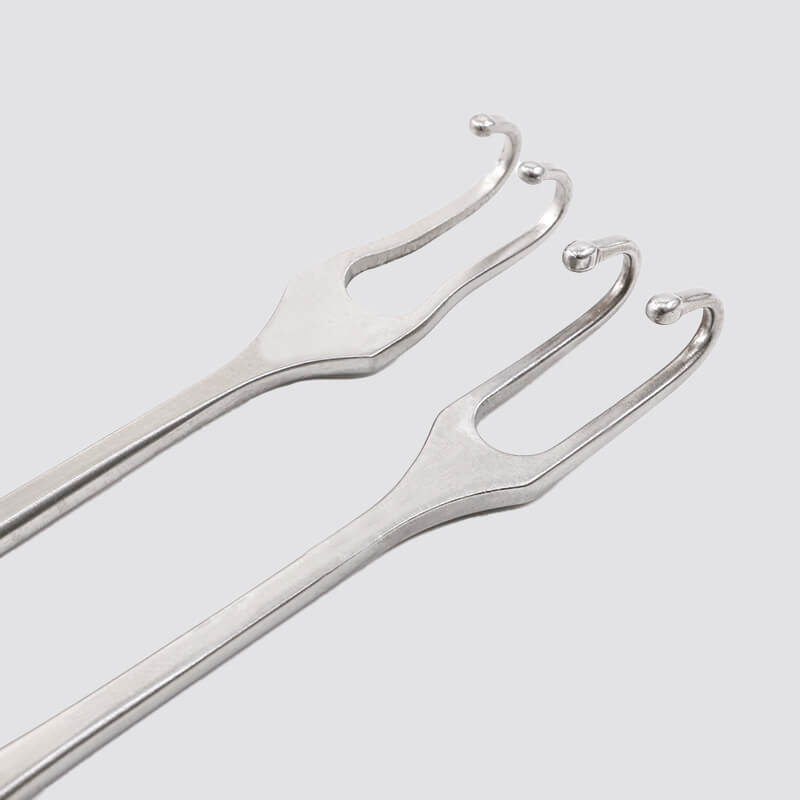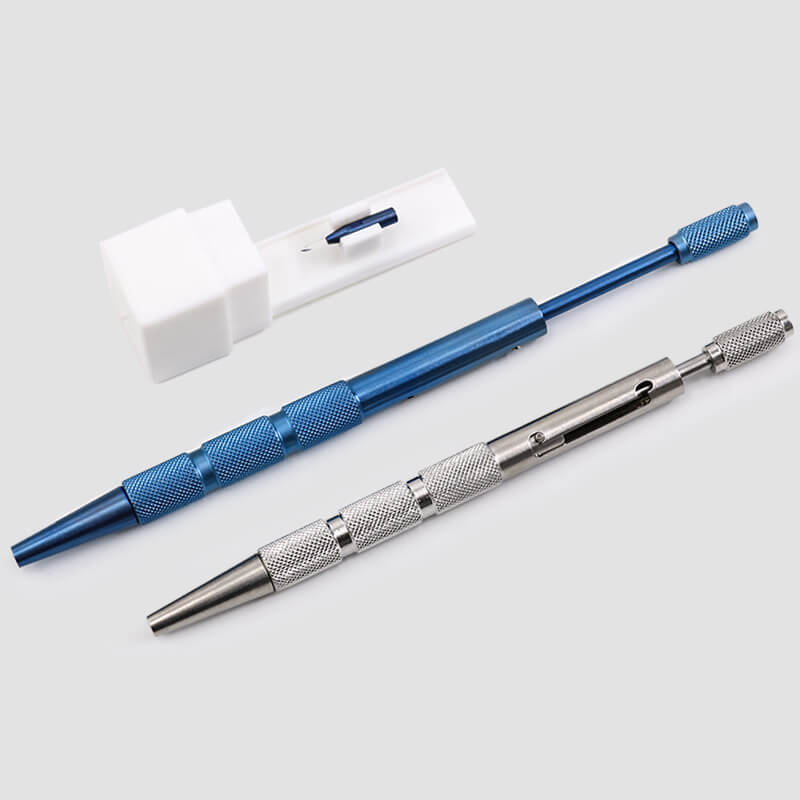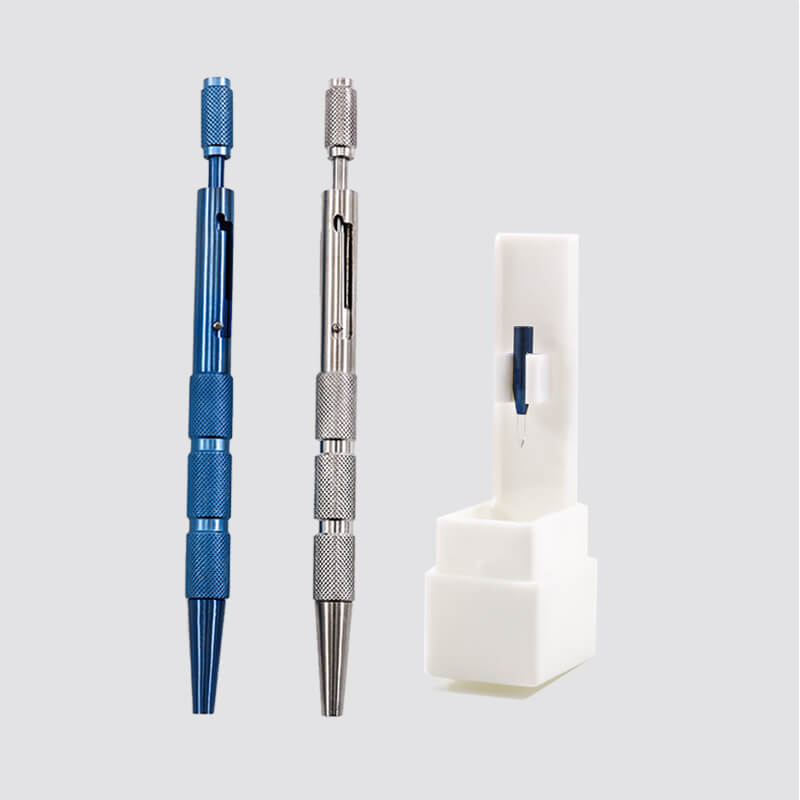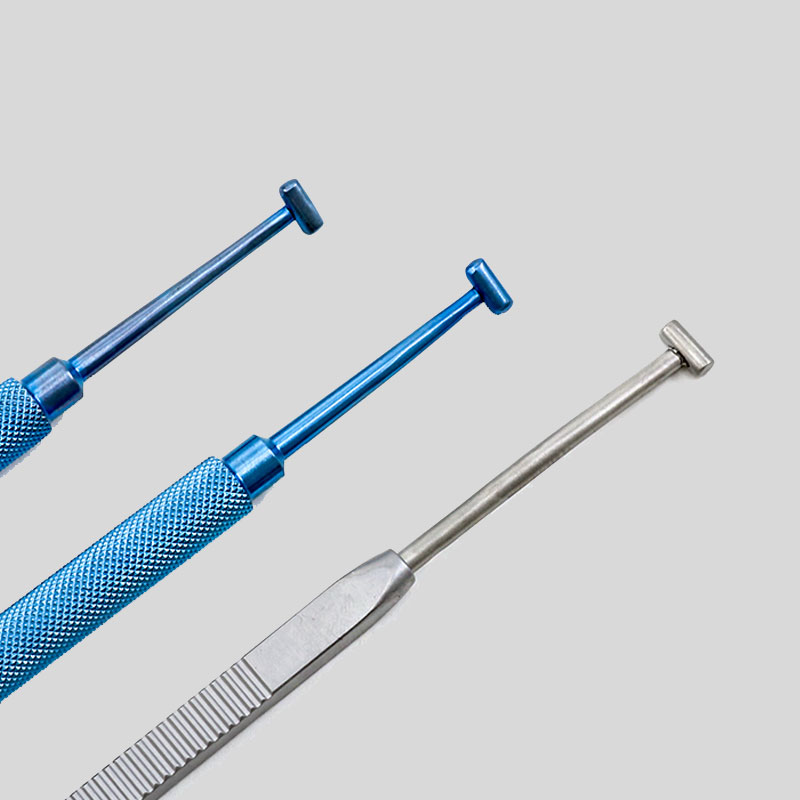What are Tissue Forceps?
Tissue forceps are also called rat-tooth forceps (Allis). The pressure on the tissue is lighter than the vascular forceps, so it is generally used to clamp soft tissue that is not easy to slip, such as clamping traction to excised lesions, in order to facilitate the operation, clamp gauze pads and incision edges of the subcutaneous tissues, to avoid contamination of the tissues within the incision.

These tools come in various designs and sizes, allowing surgeons to select the best option for specific tasks. Some feature serrated jaws for better traction, while others have smooth surfaces that minimize trauma.
Often made from stainless steel or titanium, tissue forceps are durable and easy to sterilize. Their lightweight construction enables precision handling in delicate situations.
Commonly used across different medical fields like surgery, dermatology, and veterinary medicine, these instruments play a vital role in enhancing efficiency during procedures. Understanding their design helps ensure you choose the right type for your needs.
Composition of Tissue Forceps
Tissue forceps often consist of two tissue forceps plates and gill shafts for forceps
The tips of tissue forceps may vary in design. Some feature serrated edges to enhance grip on tissues without causing damage. Others have smooth surfaces ideal for gentle manipulation.
Ergonomic designs are also a key component. Many tissue forceps come with textured handles that provide a secure grip, allowing surgeons to maintain control throughout their tasks.
Additionally, some models include fine-pointed tips or wider jaws depending on the intended use. Each variation serves a specific purpose in enhancing surgical accuracy and efficiency while prioritizing patient safety.
Uses of tissue forceps
Tissue forceps are used for holding skin, fascia, and other tissues during surgery.

These surgical instruments come into play when precision is crucial. Surgeons rely on tissue forceps to securely hold tissues without causing damage, which is vital for successful outcomes. Additionally, they can help in suturing by providing better visibility and access to the area being treated.
Beyond surgery, tissue forceps are also useful in dissection and biopsies. Their design allows healthcare professionals to perform intricate tasks with confidence. Whether it’s retrieving samples or separating layers of tissue, these tools streamline processes significantly.
The adaptability of tissue forceps extends beyond the operating room as well. In laboratories, they assist researchers during dissections or while handling delicate specimens.
Choosing the right size and shape of tissue forceps becomes important based on these diverse uses. Selecting an appropriate tool ensures efficiency and effectiveness across various applications within medical practices.
Classification of tissue forceps
Tissue forceps have long, short, coarse, and fine teeth. According to the depth of the teeth at the front end of the forceps, they are divided into two types: damaged and undamaged.
(1) The deep teeth for the damaged tissue forceps (traumatic tissue forceps), clamping firm and powerful, not easy to slip off, used for clamping soft tissues and flaps, such as clamping traction removed lesions, in order to facilitate the operation, clamping gauze pads and incision edges of the subcutaneous tissues, to avoid contamination of the tissues within the incision.
(2) Shallow teeth for non-invasive tissue clamp, can clamp closed blood vessels, according to the depth of the tissue to choose a different length of tissue clamp, its pressure on the tissue is lighter than the vascular clamp.
Notes on the use of tissue forceps
(1) Surgical instruments should be avoided as much as possible from external impacts, such as throwing, dropping, and mutual collision.
(2) Prevent the chrome plating layer or passivation film damage and reduce the corrosion resistance.
(3) Appropriate instruments and specifications should be selected according to the needs of surgery to achieve the desired effect of use.
(4) Any piece of surgical instrument has its specific use and use range, not allowed for other use or alternative use, otherwise it may cause damage to the instrument.
Routine maintenance and care of tissue forceps
(1) The cycle of surgical instruments: use → classification → cleaning and disinfection → maintenance → packing → sterilization → storage → supply and distribution.
(2) Surgical instruments must be sterilized and cleaned in time after use.
(3) Collision and impact should be prevented during the sterilization process. Impact may cause damage to fine instruments and instruments with edges, and reduce the corrosion resistance of the surgical instruments.
(4) When cleaning manually, use soft linen, plastic brushes, cleaning guns, compressed air guns, etc., and do not use metal brushes or medium cleaning reagents to prevent damage to the instruments.

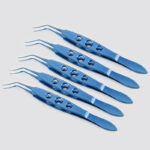 Capsulorhexis Forceps
Capsulorhexis Forceps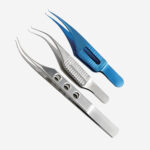 Suture Forceps
Suture Forceps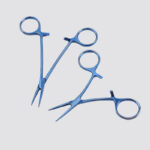 Hemostatic Forceps
Hemostatic Forceps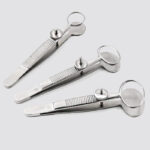 Chalazion Forceps
Chalazion Forceps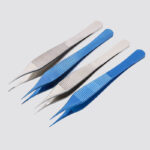 Adson Forceps
Adson Forceps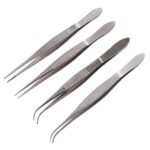 Tissue Forceps
Tissue Forceps












